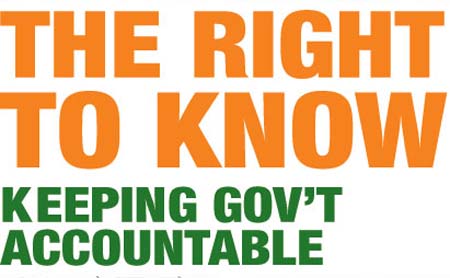The failure to adopt access to information legislation goes against  international law which recognises this right and obliges states to ensure that public authorities respond to information requests. Moreover, the lack of such legislation is urgently felt in view of Kazakhstan’s leadership in Central Asia and its 2010 chairmanship of the OSCE.
international law which recognises this right and obliges states to ensure that public authorities respond to information requests. Moreover, the lack of such legislation is urgently felt in view of Kazakhstan’s leadership in Central Asia and its 2010 chairmanship of the OSCE.
Supported by United Nations Development Programme (UNDP), a group of MPs and legal experts prepared a draft Law on Access to Public Information.
In its analysis, Article 19 welcomes the draft Law and highlights many of its positive features, including broad definition of the right to access information, good process guarantees, specific obligations of proactive disclosure, and the recognition of a right to attend public meetings.
Too many exceptions
At the same time, the analysis identifies the weaknesses of the draft Law and recommends a number of improvements aiming to bring the draft in line with international standards. The most serious shortcomings of the Law are the broad regime of exceptions and the mechanism securing the enforcement of the law.
enforcement of the law.
Last week, Article 19 also presented its recommendations and broader suggestions on the pending legislation at an international conference in Astana, which included legislators, government officials and other stakeholders from Kazakhstan.
Article 19 welcomes and strongly supports the efforts of the MPs and civil society of Kazakhstan to adopt an access to information law and calls on Parliament to urgently adopt the Law, subject to Article 19 recommendations, and make it fully operational.
The analysis of the draft Law is based on international law and best practice in the field of access to information, as summarised in two key Article 19 documents: The Public’s Right to Know: Principles on Freedom of Information Legislation and A Model Freedom of Information Law (Article 19 Model Law). Both publications represent broad international consensus on best practice for access to information.
Background
Over 90 countries representing nearly five billion people have now adopted laws or national regulations on the right to information (RTI). However, over half the countries of the world have not yet adopted RTI laws and many that have done so have failed to implement them adequately.
In the past year, Article 19 has been actively engaged in promoting RTI in dozens of countries across the world, releasing over 40 documents including legal analyses, reports, and statements.
Article 19 offices have also been providing assessments, trainings and  reviews including implementation of RTI in Azerbaijan, access to environmental information in the People´s Republic of China, local administration, heath and education in rural Indonesia, campaigning for RTI in Brazil, Kenya, Senegal and Ukraine, training of officials in Bangladesh, Indonesia, Iraq and Ethiopia, access to health information in East and West Africa, and reviewing access to parliamentary information in East Africa.
reviews including implementation of RTI in Azerbaijan, access to environmental information in the People´s Republic of China, local administration, heath and education in rural Indonesia, campaigning for RTI in Brazil, Kenya, Senegal and Ukraine, training of officials in Bangladesh, Indonesia, Iraq and Ethiopia, access to health information in East and West Africa, and reviewing access to parliamentary information in East Africa.
Contacts
For more information please contact: Boyko Boev, Legal Officer, boyko@article19.org, +44 20 7324 2516.
Article 19 is an independent human rights organisation that works around the world to protect and promote the right to freedom of expression. It takes its name from Article 19 of the Universal Declaration of Human Rights, which guarantees free speech.
HRH London, based on Article 19 information.
Related links:
Five billion people in the world have right to information
Kazakhstani HR defender receives the 2010 Sakharov Award
Kazakhstan’s OSCE chairmanship: Kazakhstan must implement its Human Rights obligations
Kazakhstan: draft Administrative Code props up harsh penalties against media





